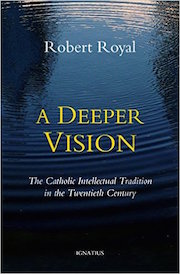A Christian should never be angry. So Jesus seems to teach in the Sermon on the Mount: “You have heard that it was said to your ancestors, ‘You shall not kill; and whoever kills will be liable to judgment.’ But I say to you, whoever is angry with his brother will be liable to judgment.” (Matthew 5:21) He seems to forbid anger not on the attenuated utilitarian grounds that it can lead to murder, but on the fuller and deeper grounds that there is something of murder already implicit in anger.
Christians have long tried to evade the force of this teaching. St. Jerome already noted that some manuscripts inserted the qualification “without cause.” But “by the true reading,” he says, after studying the manuscripts and sources, “anger is denied to us unconditionally. The words ‘without cause’ must be erased; after all, ‘the anger of a man does not work the righteousness of God.’” (cf. James 1:20)
Many earnest readers of the Bible have argued, to the contrary, that Jesus himself was angry. When the Pharisees would block him from healing the man with a withered hand on the Sabbath, he “look[ed] round about on them with anger, being grieved for the blindness of their hearts.” (Mark 3:5) The Greek is met’ orgês – undeniably “with anger.” When his disciples tried to block the little children from coming to him, he was “indignant” (Mark 10:14), as he was when he saw the leper’s sickness. (Mark 1:41)
But these are clearly cases of anger at things, not at persons: the hardness of heart, the well-meaning obstructionism, the degradation which is leprosy. In the Sermon on the Mount he forbids anger towards one’s brother. We feel anger “at someone” when we are convinced he has shown us contempt in hurting us, and we want him to suffer evil in revenge, as what he deserves. Jesus shows nothing like this in the cases described; rather, when he was on the Cross, shown contempt by his tormenters, he said “forgive them Father.”
What about when he made a whip, overturned tables, and drove the money changers and vendors out of the temple? Surely he was angry then? And yet – look carefully – even though we have four accounts of it, no Evangelist uses even a single word to describe Jesus’s emotions. (Matthew 21, Mark 11, Luke 19, and John 2) Rather, John cites a prophecy: “And his disciples remembered, that it was written: The zeal of thy house hath eaten me up.” (2:17) The Greek word means “to eat all the way down, to utterly devour.” The image is not that his zeal eats up others, but that it eats up himself – whatever he might claim as his own, which might be thought to excuse him from doing nothing in the face of the offense.
In the classical world, there was a well-known dispute over anger. The Stoics, the first “cool” men, held that anger was irrational, and that a wise and virtuous person would have such self-control that he would never experience it. The “Peripatetics,” Aristotelians, held that we are designed to feel anger for a purpose, and that anger is virtuous so long as it conforms to reason.

St. Augustine says in this spirit: “to be angry with a brother to the end that he may be corrected, no man of sound mind forbids. Such sort of emotions, as come of love of good and of holy charity, are not to be called vices when they follow right reason.”
St. John Chrysostom even cautions us against failing to be angry when we should: “If there were no anger, then teaching would be unprofitable, judgments would lack force, and crimes would not be controlled. Therefore, anyone who fails to be angry when the cause is just, is in sin; for an unreasonable patience sows vices, breeds carelessness, and invites the good as well as the bad to do evil.”
Not surprisingly our age shows both vices: both an easy, self-indulgent, and prideful toleration of sins that should make us angry, and a wild over-flowing of anger towards others, especially those who oppose sins.
Although our age regards itself as sensitive to emotions, I find it striking how impoverished our own self-understanding of anger is, compared with earlier ages. Simply compare catechisms. The Catechism of the Catholic Church has nine very brief paragraphs on the emotions, and they fail to touch anything deep.
For example: “Strong feelings are not decisive for the morality or the holiness of persons; they are simply the inexhaustible reservoir of images and affections in which the moral life is expressed. Passions are morally good when they contribute to a good action, evil in the opposite case.” (n. 1768)
But The Catechism of the Council of Trent gives much good advice to pastors, about how to preach on anger and hatred. Also, St. Thomas Aquinas’s approachable catechesis on the Ten Commandments has separate sections on “The sin of anger,” “Ways of avoiding anger,” “Three considerations of anger,” and “Why we should not get angry easily.”
The saint concludes: “It is for all this that Christ taught us not only to beware of murder but also of anger. The good physician removes the external symptoms of a malady; and, furthermore, he even removes the very root of the illness, so that there will be no relapse. So also the Lord wishes us to avoid the beginnings of sins; and anger is thus to be avoided because it is the beginning of murder.”














